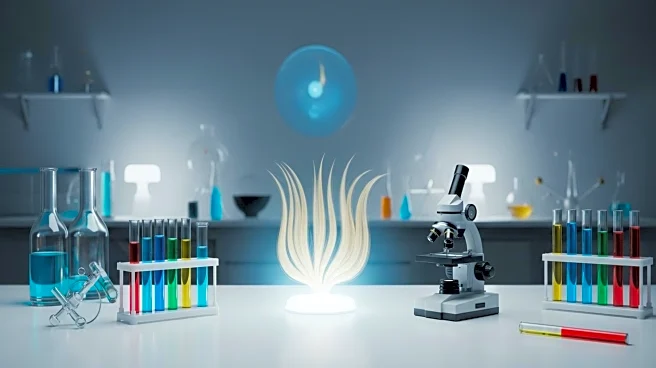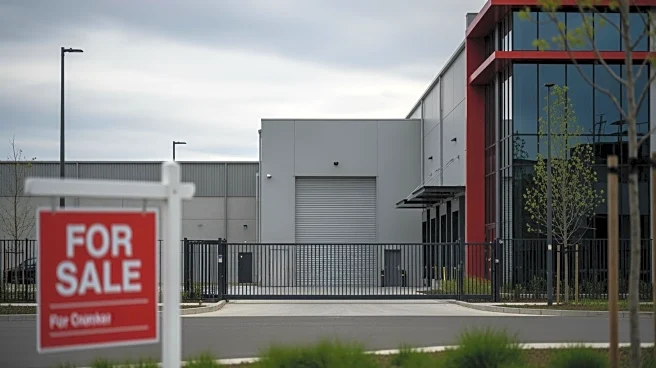What's Happening?
British beauty brand Ruka has launched a new line of lab-grown hair extensions called Synths 2, which are made from collagen protein fibers. This innovation aims to provide a safer alternative to traditional synthetic wigs and extensions, which have been criticized for containing harmful chemicals. The new product is biodegradable, hypoallergenic, and dyeable, offering a more sustainable and health-conscious option for consumers. The launch comes at a time when safety concerns around hair products targeted at Black women are increasing, with studies revealing the presence of carcinogens and heavy metals in some popular hair extensions. Despite these concerns, the market for hair extensions remains dominated by large players, and smaller companies have struggled to scale due to logistical challenges.
Why It's Important?
The introduction of lab-grown hair extensions by Ruka is significant as it addresses growing health and environmental concerns associated with traditional hair products. This development could potentially disrupt the $11.9 billion global wigs and extensions market by offering a safer and more sustainable alternative. The move also highlights the increasing demand for transparency and safety in beauty products, particularly those used by Black women. As consumers become more health-conscious, companies like Ruka that prioritize safety and sustainability may gain a competitive edge. However, the higher price point of lab-grown hair compared to human hair could be a barrier to widespread adoption.
What's Next?
Ruka plans to expand its retail presence to make its products more accessible, aiming to partner with major retailers like Boots and Sephora. The company is also working on its next innovation, Synths 3, which promises to offer even more improvements in terms of durability and aesthetics. As the market for hair extensions continues to grow, Ruka's focus on education and safety could position it as a leader in the industry. However, the company will need to overcome challenges related to production costs and consumer acceptance to achieve widespread adoption.
Beyond the Headlines
The launch of lab-grown hair extensions by Ruka also raises questions about regulatory standards in the beauty industry. Currently, hair extensions are not classified as cosmetics or textiles, which means they are not subject to the same safety standards. This regulatory gap could pose challenges for companies like Ruka that are trying to promote safer alternatives. Additionally, the ethical implications of sourcing human hair and the environmental impact of synthetic hair production are likely to remain important considerations for consumers and industry stakeholders.









